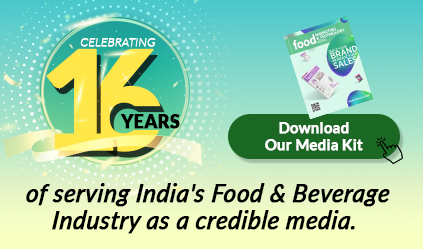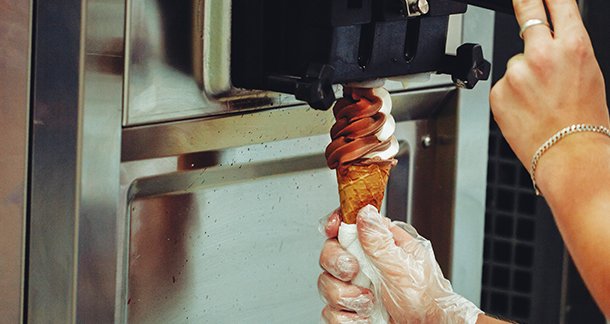Most ice cream production and processing machines are developing AI Integrated Human Interface Modules that control the majority of the critical parameters. Previously, overrun was set up manually by the operator, resulting in a weight variance in the finished product, but now it is a PLC-controlled digital system. If 109% O.R is required, the machine will automatically maintain the set overrun and extrude the ice cream. Here are some of the trends that are shaping the future of ice cream production:
AI-Powered Quality Monitoring: AI-based solutions aid in real-time quality monitoring by detecting discrepancies in colour, body, and texture using a texture analyser, flavour intensity, and microbial safety before products are ready for consumers.
Personalised Ice Cream Production: Many suppliers offer pre-programmed AI-driven jumbo fillers that fill the container in a designed pattern without leaving any gaps or losses, allowing manufacturers to predict consumer preferences and customise design, flavours, ingredients, and nutritional content, among other things.
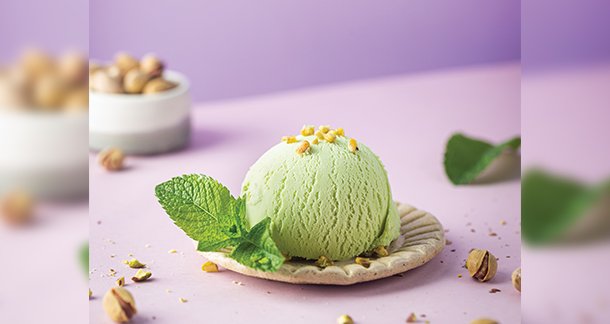
Sustainable Ingredients and Packaging: To satisfy sustainability goals, the ice cream business is turning to plant-based and alternative dairy ingredients, such as vegan milk and organic ingredients, as well as biodegradable and recyclable packaging. Customers are also exhibiting a lot of interest in vegan ice cream, which encourages sustainable manufacturing.
Automated Manufacturing and Robotics: Roboqbo is a well-known Italian AI-powered robotics machine that streamlines the automated production of intermediates such as fruit paste, nut paste, sauces and pulp, and processes it under vacuum to preserve the natural aroma of the product. For example, when pineapple paste is made by boiling at room temperature in open vessels, most of the nutrients and aroma are lost and the quality is reduced, but when processed in the Roboqbo machine, its taste improves. This improves productivity, increases efficiency, reduces labour dependency, and ensures quality.
IoT-Enabled Supply Chain Management: This includes the integration of IoT (Internet of Things) to improve the tracking of raw materials, finished goods storage conditions, and distribution through data logger machines to check temperature history during transportation, and a frequent GPS system to track real-time positioning of the ice cream vehicle, ensures product quality and safety.
3D Printing for Ice Cream Design: Advanced 3D printing technology enables the creation of detailed designs and unique textures for the product, resulting in a revolution in visually appealing and customisable ice cream.
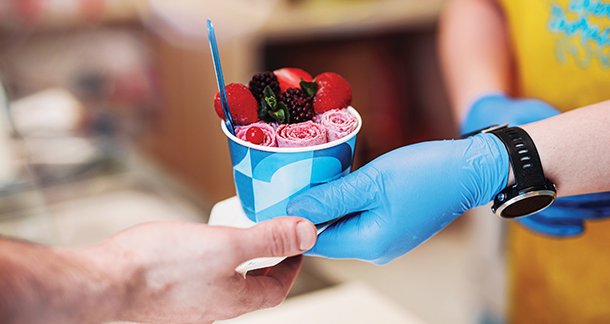
Health-conscious Ice Cream Product: Pre-biotic, pro-biotic, low sugar, no sugar added, vegan ice cream, and low calorie guilt-free ice cream trends are becoming more popular among customers.
Energy Efficiency in Production: The ice cream business is extremely focused on lowering energy costs by implementing modern energy-efficient equipment, such as automatic C.F., smart refrigeration units, and eco-friendly freezers, which reduces the carbon footprint and operational expenses.
Sustainable Ice Cream Cold Chain Logistics: Improved refrigeration transportation methods, such as high-tech auto-controlled temperature and cutoff systems, as well as solar-powered storage solutions, will help to reduce product logistics and transportation costs while minimising environmental impact.
Eco-Friendly Ingredients: New age consumers are driving the ice cream business to focus on sustainable sourcing of dairy and non-dairy ingredients, including plant-based alternatives, in order to reimagine the ice cream industry with minimal environmental and human health impact.
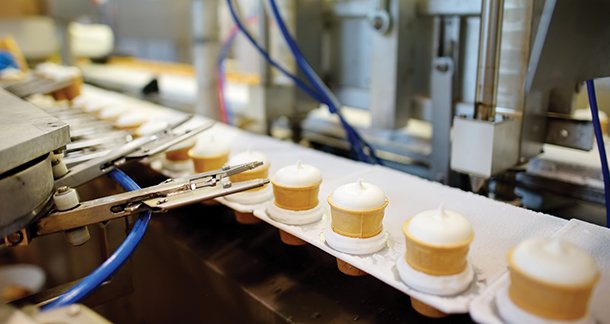
These changes and factors will set a precedence for years to come for the ice cream industry and navigating the industry through these broader paradigms will ensure new avenues of success for the ice cream market.
AUTHOR
Ajay Kumar Dubey
General Manager , Scoops Ice cream , Hyderabad
